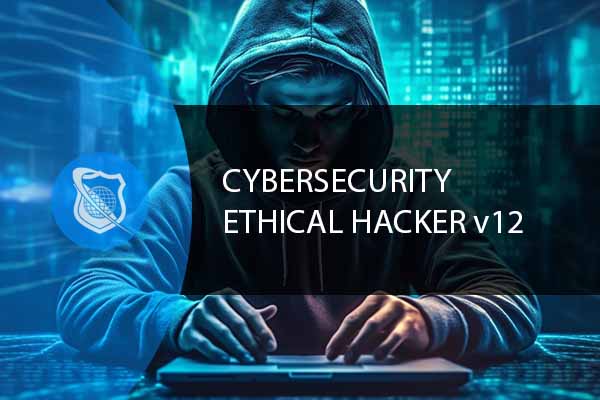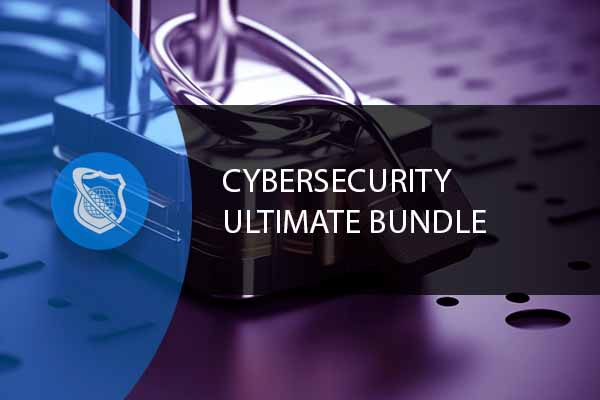What Is 5G?
5G stands for the fifth generation of cellular network technology, providing faster speeds, lower latency, and more reliable connections on mobile devices and other 5G-enabled technologies compared to its predecessor,

The Certified Ethical Hacker (CEH) certification is more than just a title; it’s a testament to your skills and knowledge in the realm of cybersecurity. As one of the most sought-after ethical hacking certifications globally, CEH serves as a cornerstone for professionals aiming to make a mark in this ever-changing field. Administered by the EC-Council, this certification is a gateway to a range of ethical hacking courses that equip you with the tools, techniques, and knowledge to defend against cyber threats effectively.
Over the years, the CEH certification has seen multiple updates, each designed to align with the latest trends and threats in cybersecurity. These updates ensure that the CEH training you receive is not just current but also relevant, preparing you for real-world challenges. The CEH exam, a critical component of the certification process, is meticulously crafted to test your understanding of ethical hacking methodologies across various domains. From system hacking to vulnerability analysis, the CEH exam covers it all, making it a comprehensive test of your skills.
One of the key aspects that set CEH apart from other hacking certifications is its focus on ethical hacking training that is both theoretical and practical. Whether you’re a beginner wondering “What is CEH?” or a seasoned professional looking to upgrade your skills, the CEH course offers something for everyone. The CEH certification cost is a worthwhile investment, given the career opportunities and skill enhancement it provides.
In the ever-evolving landscape of cybersecurity, staying updated is not just an option but a necessity. That’s where the different versions of the CEH certification come into play. ITU Online’s blog post provides an in-depth comparison between two such versions—CEH v11 and CEH v12. Each version brings its own set of updates and refinements, ensuring that you’re learning the most current and effective ethical hacking techniques.
So, if you’re contemplating how to become a certified ethical hacker or wondering about the CEH bootcamp and CEH classes available, understanding the differences between CEH v11 and CEH v12 is a great starting point. This will not only help you make an informed decision but also prepare you for the CEH test, ultimately leading you to earn this prestigious ethical hacking cert.
Embark on your ethical hacking journey with our 3-course program! Master advanced concepts, select the right tools, and gain hands-on experience with real-world scenarios.
Unveiled in 2020, the Certified Ethical Hacker (CEH) v11 certification marked a significant evolution over its predecessor, CEH v10. This updated version of the ethical hacking certification was meticulously designed to meet the demands of the modern cybersecurity landscape. With a curriculum that spans 20 core modules, CEH v11 offers a comprehensive ethical hacking course that dives deep into critical areas such as vulnerability analysis, system hacking, and social engineering.
One of the standout features of CEH v11 is its expansive curriculum. The CEH exam for this version is a rigorous test that lasts four hours, challenging candidates on a wide array of topics. To pass the CEH test, candidates are required to score at least 60%, making it a stringent but fair assessment of one’s ethical hacking skills. The exam’s structure ensures that only those with a thorough understanding of ethical hacking methodologies earn this prestigious ethical hacking cert.
In a world increasingly reliant on smart devices, the inclusion of IoT (Internet of Things) hacking in the CEH v11 curriculum is both timely and essential. This new focus equips aspiring ethical hackers with the skills to identify and secure vulnerabilities in IoT devices, a growing concern in today’s interconnected world. Understanding IoT vulnerabilities is not just an add-on but a necessity in the current ethical hacking training landscape.
When it comes to the CEH certification cost, CEH v11 offers competitive pricing. While the cost of becoming a certified ethical hacker can vary depending on various factors like location and training centers, the investment is well worth the career opportunities and skill enhancement that come with this certification.
If you’re pondering how to get CEH certification or are new to the field and wondering “What is CEH?”, then CEH v11 serves as an excellent starting point. Its comprehensive curriculum, focus on emerging threats like IoT hacking, and competitive CEH certification cost make it a compelling choice for anyone looking to break into or advance in the cybersecurity field.
In summary, CEH v11 is not just another ethical hacking course; it’s a robust training program designed to equip you with the skills and knowledge you need to face the challenges of modern cybersecurity. Whether you’re preparing for the CEH exam or looking to enhance your ethical hacking training, CEH v11 offers a well-rounded and up-to-date program that stands out in the crowded field of cybersecurity certifications.
The Certified Ethical Hacker (CEH) certification from the EC-Council has seen several versions [1]. CEH v11, which was available prior to v12, was structured to provide foundational hacking techniques and tools in various domains. Here is a general breakdown of the CEH v11 curriculum:

Ready to become an unstoppable force in cybersecurity? Our Certified Ethical Hacker V12 course is your gateway to mastering the art of ethical hacking. Dive deep into vulnerability analysis, target scanning, and stealthy network penetration. With hands-on activities and expert insights, you’ll learn to break into target networks, gather evidence, and exit without a trace. Don’t just learn to hack—learn to hack like a pro!
hacking certification builds upon the strong foundation laid by its predecessors, offering a curriculum that is both comprehensive and up-to-date. Like CEH v11, this version also covers 20 core modules, ensuring a well-rounded ethical hacking course that prepares you for a variety of cybersecurity challenges.
One of the most noteworthy additions to the CEH v12 curriculum is the focus on Operational Technology (OT) hacking. As critical infrastructures like power plants, water treatment facilities, and transportation systems become increasingly connected, the vulnerabilities in these OT systems have become a growing concern. This new module in the CEH training program equips aspiring ethical hackers with the skills to identify and mitigate risks in these crucial areas, making it an indispensable part of the ethical hacking certification.
When it comes to the CEH exam cost and duration, CEH v12 maintains consistency with its predecessor. The CEH exam for this version also lasts four hours and requires a passing score of 60%. This ensures that the ethical hacking cert remains accessible to a wide range of candidates while maintaining its rigorous standards.
CEH v12 takes the CEH training experience to the next level by introducing new tools like BloodHound and Empire into its curriculum. BloodHound is used for Active Directory reconnaissance and privilege escalation, while Empire is a post-exploitation framework used for maintaining access to a compromised system. These tools not only enhance the practical aspects of the ethical hacking course but also ensure that you are well-equipped to deal with real-world scenarios.
If you’re contemplating how to get CEH certification and are looking for a program that is both comprehensive and current, CEH v12 is an excellent choice. With its focus on emerging threats like OT hacking and the inclusion of new tools, this version offers a rich and engaging ethical hacking training experience. The CEH certification cost remains competitive, making it a valuable investment for anyone serious about a career in cybersecurity.
In summary, CEH v12 is not merely an update but a significant advancement in the field of ethical hacking certifications. Whether you’re preparing for the CEH test or looking to broaden your cybersecurity skill set, CEH v12 offers a curriculum that is both thorough and cutting-edge, setting you on the path to becoming a certified ethical hacker.
Each of these modules in the CEH curriculum will delve deeply into its respective topic, providing both theoretical knowledge and practical skills for an aspiring ethical hacker.

Embark on a Thriving Cybersecurity Career! With our Ultimate Cyber Security training courses, you’ll dive into the world of ethical hacking, penetration testing, and network security. Our 15 comprehensive courses, led by industry experts, will equip you with essential Cybersecurity skills, setting you on the path to success in this ever-evolving field.
| Feature/Aspect | CEH v11 | CEH v12 |
|---|---|---|
| Release Date | 2020 | April 2021 |
| Core Modules | 20, including IoT hacking | 20, including Operational Technology (OT) hacking |
| Exam Duration | 4 hours | 4 hours |
| Passing Score | 60% | 60% |
| Exam Cost | Competitive | Remains the same as v11 |
| New Tools | N/A | BloodHound and Empire |
| Special Focus | IoT Hacking | Operational Technology (OT) Hacking |
| Learning Framework | Traditional | New 4-phase framework: Learn, Certify, Engage, and Compete |
| Hands-on Labs | Included | More extensive, with new tools |
| Global Competitions | N/A | Included in the new 4-phase framework |
The CEH certification is an essential certification for anyone looking to start a career in cybersecurity. The updates in CEH 11 and CEH 12 reflect the changes in the cybersecurity landscape and ensure that candidates have the necessary knowledge and skills to secure modern systems. While CEH 11 covers IoT hacking and cloud computing security, CEH 12 covers OT hacking and containerization technologies.
The CEH (Certified Ethical Hacker) certification is offered by EC-Council and is one of the most recognized and sought-after cybersecurity certifications globally. It equips professionals with the knowledge and skills to identify and defend against cyber threats by providing hands-on training in ethical hacking tools and techniques.
To be eligible for the CEH exam, candidates must either:
Complete the official EC-Council training (via an accredited training center, approved academic institution, or via the iClass platform).
Or, possess a minimum of 2 years of work experience in the Information Security domain (a filled-out application form must be submitted for this route, which will be verified by EC-Council).
The CEH exam consists of 125 multiple-choice questions with a time limit of 4 hours. Candidates must achieve a passing score (which can vary, but is typically around 70%) to earn the certification.
No, while the CEH certification provides valuable skills for penetration testers, it’s also beneficial for various other roles, including security officers, auditors, security professionals, site administrators, and anyone concerned about the integrity and security of their network infrastructure.
The CEH certification is valid for three years. To maintain the certification, professionals must earn 120 ECE (Continuing Education) credits within this period to apply for recertification.
Lorem ipsum dolor sit amet, consectetur adipiscing elit. Ut elit tellus, luctus nec ullamcorper mattis, pulvinar dapibus leo.
$49.99 Original price was: $49.99.$16.99Current price is: $16.99. / month with a 10-day free trial
5G stands for the fifth generation of cellular network technology, providing faster speeds, lower latency, and more reliable connections on mobile devices and other 5G-enabled technologies compared to its predecessor,
An Access Point Name (APN) is a setting on mobile devices that identifies an external network a device can connect to for accessing data services. Acting as a gateway, APNs
Adaptive Encryption is an advanced security measure that dynamically adjusts its encryption methods and strength based on the perceived level of threat and the type of data being protected. This
Address Resolution Protocol (ARP) is a fundamental protocol used in the Internet Protocol (IP) networking realm. Its primary function is to map or resolve IP addresses to the physical machine
Advanced Driver-Assistance Systems (ADAS) are electronic systems in vehicles designed to enhance vehicle safety and aid the driver in the driving process. These systems use a variety of sensors, such
Agile Development Practices encompass a set of methodologies and principles aimed at improving the efficiency, flexibility, and adaptability of the software development process. These practices are designed to foster collaboration
Agile Requirements Engineering is a crucial discipline within software development and project management that focuses on the continuous identification, documentation, and management of the requirements for a project in an
Agile Testing is a software testing process that follows the principles of agile software development. It is an iterative testing process that is part of the development lifecycle, emphasizing flexibility,
Air-gap security is a network security measure that involves isolating a computer or network from external networks, including the internet and local area networks (LANs). This isolation is achieved physically,
Algorithmic Complexity Theory, often synonymous with Computational Complexity Theory, delves into the study of computational problems with respect to the resources they require for their solution. This theory categorizes problems
Ambient Intelligence (AmI) refers to electronic environments that are sensitive and responsive to the presence of people. This concept combines several key technologies, including IoT (Internet of Things), sensor technology,
Electronic components are the building blocks of electronic circuits; they are the individual pieces that, when combined, create the functionality of electronic devices. These components can be classified broadly into
ENDING THIS WEEKEND: Train for LIFE at our lowest price. Buy once and never have to pay for IT Training Again.

Get ready for the updated 220-1201 & 220-1202 exams with our brand-new CompTIA A+ training—designed to help you pass with confidence and start your IT career strong. Access this course and over 2,900 hours of expert-led IT training when you sign up for any of our All-Access Passes. Don’t miss out—enroll now and start learning today!